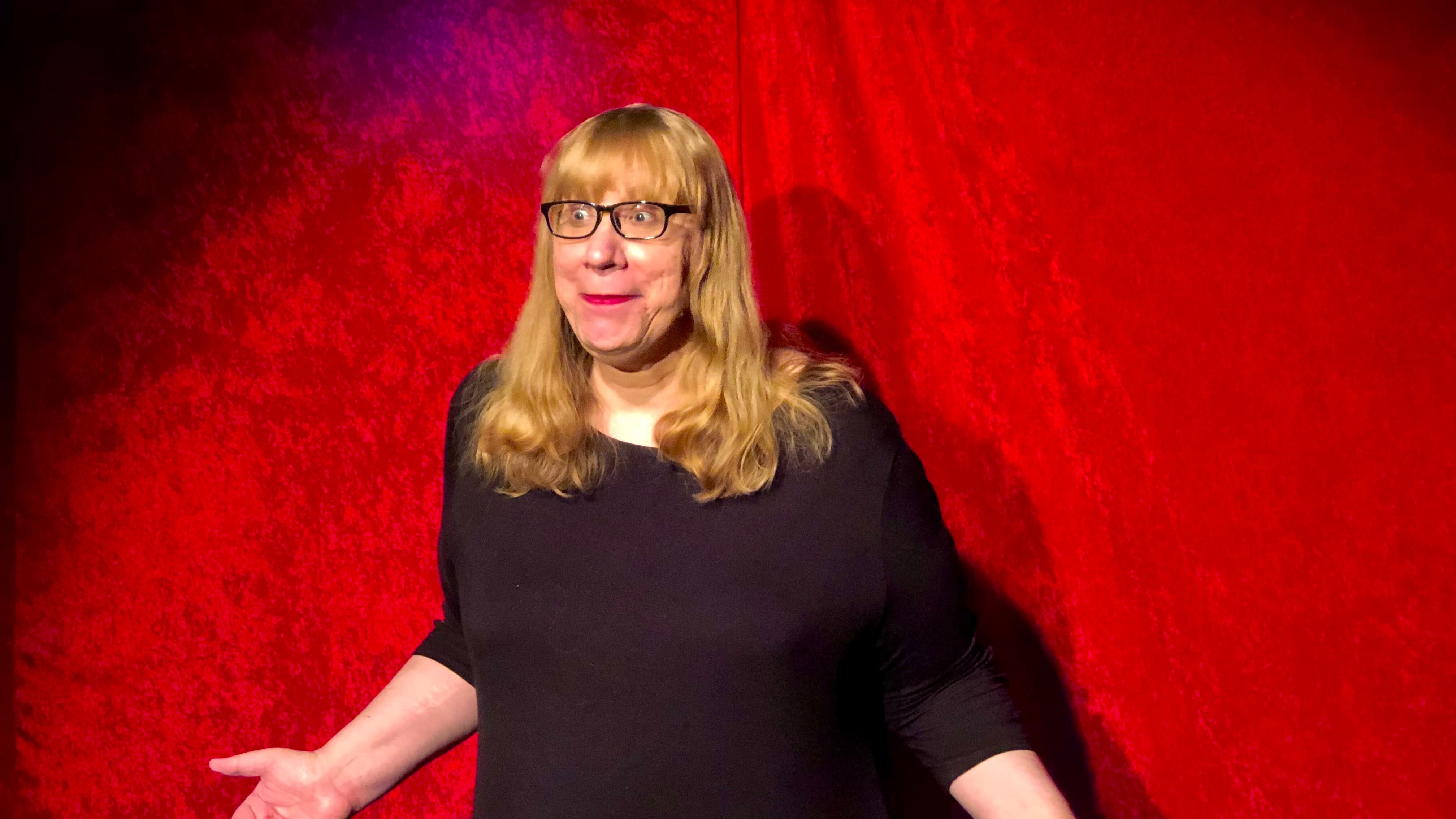“My dad could do anything.”
Actress and playwright Jane Comer repeats those words like a mantra in The Fear of Speaking, one of three performances featured in her festival of work Becoming Understood.
Comer’s description of her father is fraught with double meanings. She’s talking about how he personally supported her when she came out as a trans woman, but she’s also referring to his failure to acknowledge her as his daughter to others. To Comer, being able to “do anything” can encompass actions both noble and numbing.
It also implies possibilities. As an actress, Comer actually can do everything. She is witty, she is charismatic, she is vulnerable, she is powerful. She can also oscillate from sweeping social commentary to devastatingly personal confessions in a single scene—a talent that flourishes in Becoming Understood, a Fuse Theatre Ensemble presentation that looks into her soul.
Becoming Understood features two live performances, The Fear of Speaking and I Am an Actress: A Passion Play, and one film, Becoming Adorable. I saw Speaking and Adorable, both of which are delightfully exuberant additions to a Portland theater scene that has offered audiences far too little escapism to help alleviate the misery of 2020 and 2021.
The Fear of Speaking, directed by Rusty Tennant, has an impish and ingenious premise. Comer is teaching a class for people who are terrified of public speaking, but none of the students have shown up to complete their final assignment, giving a speech. In their absence, Comer proceeds to read their speeches, along with two of her own.
Throughout The Fear of Speaking, Comer craftily uses pop culture to offer insight into her life. An anecdote about her passion for Xanadu: The Musical offers a portrait of the time after she came out as trans and was suddenly denied numerous acting jobs. It’s one of many instances where she cleverly uses a broad topic to lead us into more intimate territory.
The reverse is true when Comer reads a speech by a student named Hortense. Recalling the people she knew who died during the AIDS epidemic, Hortense initially seems oddly callous, especially when she discusses the death of her favorite cake baker. “I did manage to find another baker who made OK cakes, but it just wasn’t the same,” she sighs.
As we listen to Hortense, we learn that detachment is her way of coping with grief. Dithering over her search for a new baker allows her to avoid confronting the loss of her brother, who also died of AIDS—a revelation that rips through the speech like a gunshot. Comer may be playing herself playing another character, but hearing Hortense, you forget that and become immersed in the raw sadness filling the stage.
While sadness is essential to The Fear of Speaking, so is joy. Even as you weep for Hortense, you chuckle at how Comer does her voice, opting for stiff, sludgy delivery that will be comically familiar to anyone who has felt queasily uncomfortable addressing a crowd. And it’s just the beginning—there’s even more humor to be found in Becoming Adorable, which screens after both The Fear of Speaking and I Am an Actress.
Filmed during the pandemic and directed by Comer, Becoming Adorable stars Comer as Amy Williams, a film critic who solely reviews romantic comedies. With a raised eyebrow, she damns the genre with cheekily faint praise—in one review, she says, “It’s not the best film, but most rom-coms aren’t”—but there’s seriousness behind the silliness.
As Amy defends everything from Love Actually to Loving Leah, a Hallmark Hall of Fame film about a man in love with his rabbi brother’s widow, a poignant perspective emerges. Amy seems aware that romantic comedies can be heteronormative wish fulfillment fantasies, but she sees more. She sees a wondrous optimism and that becomes touchingly real by the end of Becoming Adorable.
If Becoming Understood wants us to understand Jane Comer, what do we learn? Above all that she has a boundless capacity for finding beauty in the midst of pain. Even as she describes how horrified she was to learn that her father kept her transition a secret, she says she tried to love the man he was rather than hate him for not being the man she wanted him to be.
With Becoming Understood, no such negotiation is required. Loving Comer’s creations for what they are is blissfully easy.
SEE IT: Becoming Understood plays at Back Door Theater, 4319 SE Hawthorne Blvd., fusetheatreensemble.com/becoming-understood. 7:30 pm Thursday-Saturday and 3 pm Sunday, through Dec. 19. Free.
